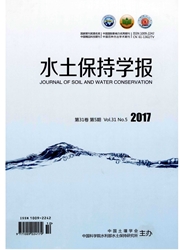

 中文摘要:
中文摘要:
土壤碳固定研究是近10年土壤学研究的重要前沿,而可持续管理的土壤固碳是当前应对气候变化和全球土壤退化的重大需求。从土壤有机碳的生态系统功能及服务出发,分析了土壤碳固定与土壤功能及生物活性的关联,评述了当前土壤碳固定与微生物活性变化的认识,探讨了土壤团聚体尺度土壤固碳与生物活性的关系,并以水稻土为例讨论了土壤碳固定中团聚体过程及其有机碳—微生物—生物活性的演进关系,提出了土壤碳库稳定性与生物活性的协同关系及其表征问题,特别是如何通过有机质—微生物—酶活性的团聚体分布揭示土壤碳固定的本质,以及良好管理下土壤固碳与生态系统功能的协同特征及其管理途径等优先科学问题。借助非破坏团聚体分组技术和现代微域原位观察分析技术,土壤学已经能从团聚体尺度深入研究土壤固碳与生物活性的土壤机制,这将全面地揭示土壤固碳对于生态系统过程、功能及服务的影响特质,进而为可持续土壤固碳和农田有机质提升,为固碳减排与农田生产力提升及土壤环境服务改善协同发展提供科学依据和管理的政策依据。
 英文摘要:
英文摘要:
Soil carbon sequestration has been one of most important research frontiers of soil science for the last decade. However, carbon sequestration for sustainable management is being urged by both climate change miti- gation and global soil degradation. In this review paper, the ecosystem functioning and ecological services of soil or- ganic carbon were emphasized. Sequestration of organic carbon was in depth examined by linking to bioactivity and ecosystem functioning of soil. Current knowledge on variation of soil bioactivity with soil carbon sequestration was o- verviewed and synthesized, particularly at micro-scale of soil aggregates. Taking rice paddy soil as an example, co- evolution of microbial community and diversity, and soil functional activity with soil organic matter build-up at soil aggregates level was analyzed in terms of soil development. Furthermore, were highlighted the emerging issue on characterizing the coupling of bioactivity with carbon sequestration, the nature of sustainable soil carbon sequestra- tion by means of micro-aggregate scale interaction of organic matter-microbe-enzyme activity, and the best manage- ment practices for attaining the sustainable carbon sequestration. All these issues could be pursued with the help of non-destructive soil aggregate fractionation and in situ microscale supermicroscopic observation technologies. There- fore, soil research on carbon sequestration versus bioactivity at microscale will enhance systematic understanding of ecosystem functioning and services provided by soil organic carbon, in order to provide sound knowledge base for rational organic matter management and sustainable carbon sequestration, and for policy making aiming at enhan- cing crop productivity and environmental services as well as climate change mitigation.
 同期刊论文项目
同期刊论文项目
 同项目期刊论文
同项目期刊论文
 Variation of bacterial and fungal community structures in the rhizosphere of hybrid and standard ric
Variation of bacterial and fungal community structures in the rhizosphere of hybrid and standard ric Combined inorganic/organic fertilization enhances N efficiency and increases rice productivity throu
Combined inorganic/organic fertilization enhances N efficiency and increases rice productivity throu Potential aerobic C mineralization of a red earth paddy soil and its temperature dependence under lo
Potential aerobic C mineralization of a red earth paddy soil and its temperature dependence under lo 期刊信息
期刊信息
